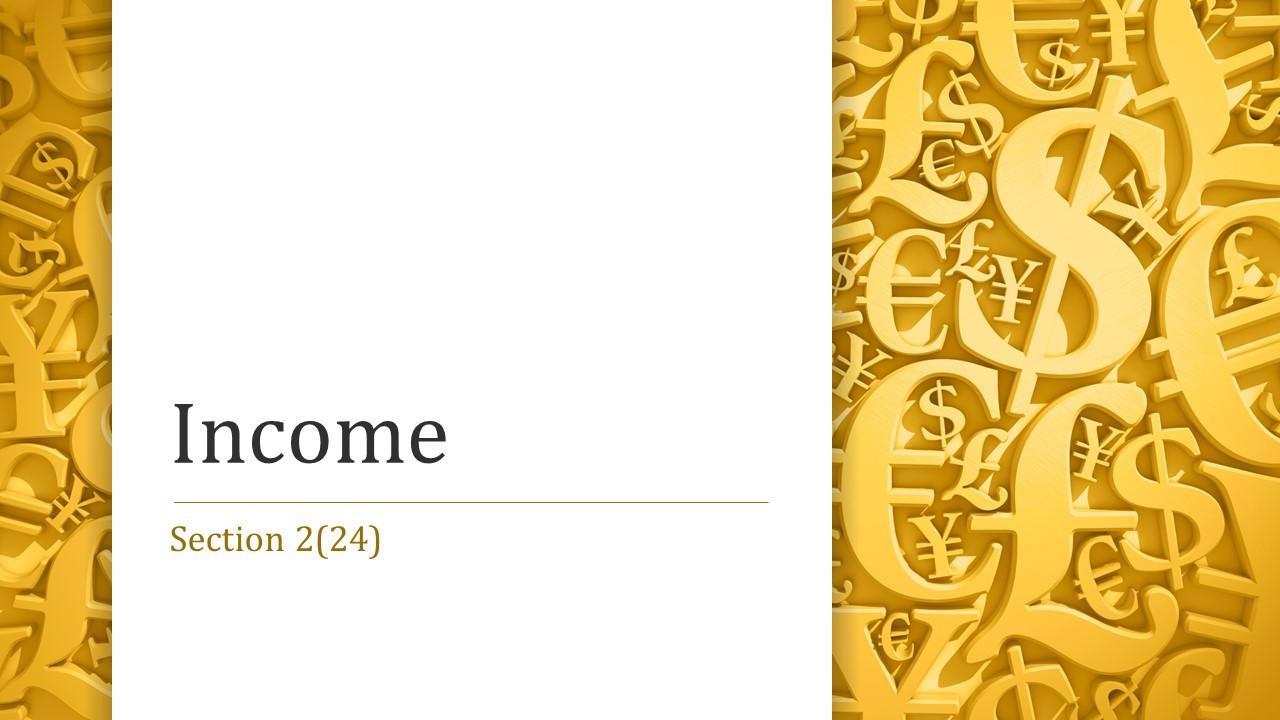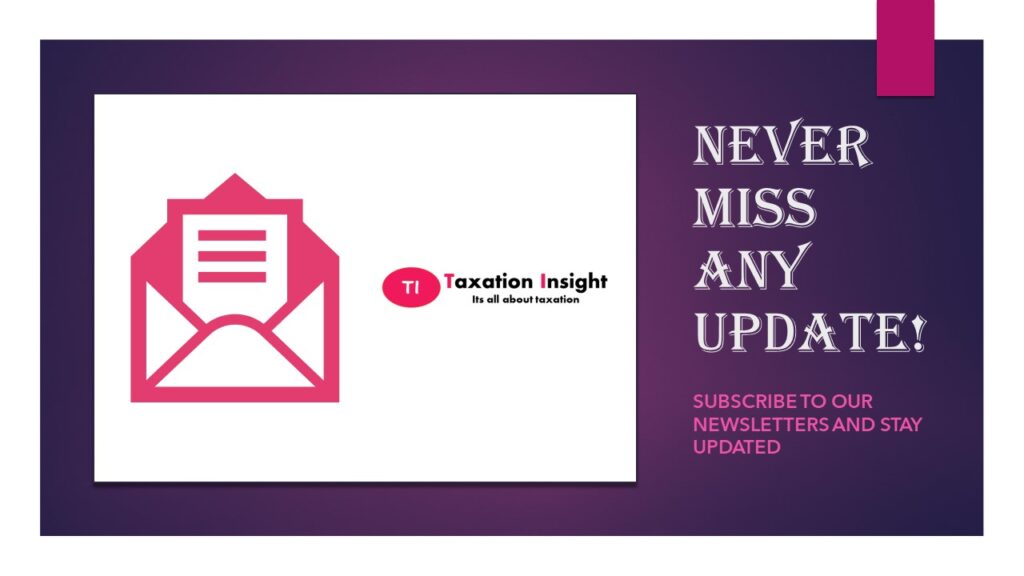
Income- What does it mean in Income Tax
Income Tax is levied on the Income earned by any person during the relevant Financial year. Hence, it is very important to understand what exactly includes in Income under this act.
The definition of Income is stated under section 2(24) of Income Tax Act, 1961 as stated below
Section 2(24)- “Income” includes-
- Profits and gains.
- Dividend.
- Voluntary contribution received by any trust created wholly or partly for charitable or religious purpose or by an association or institution referred to in section 10(21) or by a fund or institution referred to section 10(23C)(iiiad)/(iiiae)/(iv)/(v)/(vi)/)(via) or by an electoral trust.
- The value of any perquisite or profit in lieu of salary taxable under clauses (2) and (3) of section 17;
- Any special allowance or benefit, other than perquisite included under sub- clause (iii), specifically granted to the assessee to meet his expenses wholly, necessarily and exclusively for the performance of the duties of an office or employment of profit;
- Any allowance granted to the assessee either to meet his personal expenses at the place where the duties of his office or employment of profit are ordinarily performed by him or at a place where he ordinarily resides or to compensate him for the increased cost of living.
- The value of any benefit or perquisite, whether convertible into money or not, obtained from a company either by a director or by a person who has a substantial interest in the company, or by a relative of the director or such person, and any sum paid by any such company in respect of any obligation which, but for such payment, would have been payable by the director or other person aforesaid;
- The value of any benefit or perquisite, whether convertible into money or not, obtained by any representative assessee mentioned in clause (iii) or clause (iv) of sub- section (1) of section 160 or by any person on whose behalf or for whose benefit any income is receivable by the representative assessee for the benefit of the beneficiary which the beneficiary would have ordinarily been required to pay.
- Any sum chargeable to income- tax under clauses (ii) and (iii) of section 28 or section 41 or section 59.
- Any capital gain chargeable under section 45.
-
Profits and gains of any business of insurance carried on by a mutual insurance company or by a co- operative society, computed in accordance with section 44 or any surplus taken to be such profits and gains by virtue of provisions contained in the First Schedule;
-
Any winnings from lotteries, crossword puzzles, races including horse races, card games and other games of any sort or from gambling or betting of any form or nature whatsoever;]
-
Any sum received by the assessee from his employees as contributions to any provident fund or superannuation fund or any fund set up under the provisions of the Employees’ State Insurance Act, 1948 (34 of 1948 ), or any other fund for the welfare of such employees;]
- Any sum received under Keyman Insurance Policy including sum allocated by way of bonus on such policy (Keyman Insurance Policy means life insurance policy taken by any person on the life of another person where the latter is or was as employee or is or was connected in any manner whatsoever with the former’s business. It also includes such policy which has been assigned to a person with or without any consideration, at any time during the term of the policy)
- Any sum received- whether in cash or in kind under an agreement for not carrying out any activity in relation to any business or profession; or not sharing any know-how, patent, copy-right, trade mark, license, franchise, or any other business or commercial right of similar nature or information or technique likely to assist in the manufacture or processing of goods or provision of services, shall be chargeable to income tax
- Fair Market value of inventory as on the date on which it is converted into or treated as a capital asset in accordance with section 28(iva).
- Any consideration received for issue of shares as exceeds the fair market value of the shares (refer section 56(2)(viib).
- Any sum received as advance if such sum is forfeited consequent to failure of negotiation for transfer of a capital asset (refer section 56(2)(ix))
- Any sum received or value of property received without consideration or for inadequate consideration by any person (refer Section 56(2)(x)).
- Any compensation or other payment due to or received by any person, by whatever name called, in connection with termination of his employment or the modification of the terms and conditions relating thereto (Section 56(2)(xi))
- Assistance in the form of a subsidy or grant or cash incentive or duty drawback or waiver or concession or reimbursement, by whatever name called, by the central government or a state government or by any authority or body or agency in cash of in kind to the assessee is included in the definition of Income.
The word “Income” has a widest meaning and it must be given its natural and grammatical meaning. The Definition of Income is inclusive in nature as it starts with “Income Include”.
The Purpose of legislation is to keep the scope of Income very wide, it means, that it also includes receipts which did not falls into any of the above clauses but might be taxable considering it partook the nature of income.
We hope you like reading our above and it might helps you to gain some insights about this very important definition when it comes to Income Tax.
Please do share your feedbacks or any suggestions or you may even write us for any topic which you like us to consider in our next article.
Taxation Insight
